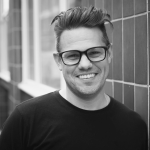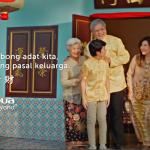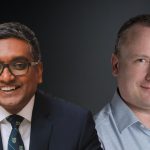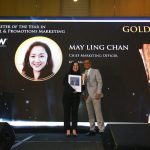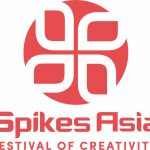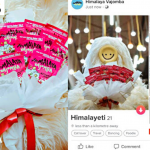
Sean Sim has been the CEO of McCann Worldgroup for the past two years, but not many have seen this talented adman in the spotlight from the time he took over the reins from Michael Constantine.
Why? Since he took on the leadership role at the agency, he has been keeping his head down and studying both the local market and his own agency to come up with a strategy on making a positive change within the group.
Prior to taking on the role Sean had been away from Malaysia for over 10 years and had held various management leadership roles including Regional ECD at Ogilvy Shanghai, COO of OgilvyAction China and Global ECD for the Huawei account.
In our interview at McCann Malaysia’s brand new office at The Ascent, Paradigm Sean shares with me his hopes for Malaysia’s creative industry and his strategy on winning the war on talent.
MALATI: Having been back in Malaysia what are some of the changes you have seen in the industry. How has the creative industry grown?
SEAN: To be truthful, I haven’t seen much of a change since I’ve been away for the past 10 years. Malaysia is still heavily dominated by above-the-line (ATL) ad spend. Although it cannot be denied that digital is growing at double digits, I would have thought the skew would have been more balanced instead of 80-90% of the budgets going to ATL.
Has the creative industry grown? Well for one it’s difficult to grow when you have a shortage of good people. I find the issue of talent drain in Malaysia to be very problematic.
We are looking at both senior hires and the fresh blood entering into the industry. More and more talented creatives are leaving the shores to seek for new challenges however the imbalance lies when you don’t see enough of these talents coming back.
The lack of fresh talent entering the industry is also problematic. You see, today, there are more “creative” choices out there for the young graduates, and we are no longer competing with fellow ad agencies. Our competition is now the start-ups, digital companies and tech giants like Facebook and Google, brands that these young kids use, love, grown up with and eventually want to work for.
Talent is just one aspect of this; we also need to look at the industry as a whole. The fact that we didn’t have the 4As Kancils in 2016 speaks volumes. Given the situation it was in I understand the need to take a year off and reinvent itself, however, even when it came back this year some agencies still decided to give it a miss.
I think we have to first sort out the issue on our creative standards and only then can we grow.

MALATI: What are some of the key changes company has embarked on so far since you joined?
SEAN: When I came there were only two things on my mind, rebuilding and restructuring to achieve growth and so far we have seen the rewards for this. We did very well at Campaign’s last Agency of the Year awards and recently came in 2nd place for the best new business in South East Asia.
Shifting away from an ATL mindset to one that was digital first was the ground rule I had to first set within the agency.
This is not only in the work that we do but also integrated within our very operating process. There is no division between the digital business unit and the rest of the agency; everything is one unit, top to bottom. We also beefed up our social media teams, with new hires and leadership.
We also had to equip our talents with the right skills to embrace our new digital first mindset which is why we got everyone, from executive to CEO, to take a compulsory digital skills training program called PXL.
PXL is McCann’s global program where we have outside trainers coming in to drill our staff for 4 days. It’s pretty interesting — one of the trainers was an ex- black hat hacker. Why a hacker? Rather than what they do its really about getting everyone to think using a hacking mentality of taking things apart and putting it back together to create something new.
Another key thing we instituted was an open system. This means honest and open communications between management and the staff. They can voice out their problems and issues with no repercussions, hey we even set up an agency-wide WhatsApp group which we use not only for chatting but also to keep in touch with each other socially.
It’s all about having an open and honest communication with one another; this also means updating our people on the state of the company – sharing news and information, be it good, bad or ugly.
When I came in the first thing I did to build the framework for the changes above was to make everyone take a talent survey. Based on their answers- for example, transparent communication had a low rating which is why we started our open system, we gradually made the changes based on their feedback.
You see only when you empower your talents and keep them protected, you can work together with a common vision.

MALATI: How is McCann waging the talent war? What are you doing to bring in new blood to join the agency?
SEAN: If you take out the people, this just becomes an empty space with a bunch of photocopy machines and computers. Talent is the lifeblood of the agency, and one of the key issues facing this industry is talent.
But you can never effect any change in talent recruitment or retention if the HR person does not have any power to effect change. This is why we created a new role within the agency- we appointed Ong Bee Lin (ex-agency head) as Operations and Talent Director.
This role is to empower the Talent Director with an Operations role, where she can have a say in the commercial running and structure of the company – and look at how we can effectively utilise our biggest asset which is our people.
Everyone who comes into McCann gets treated with the same amount of respect. When you come in as an intern you don’t end up making coffee but become part of the team and work on live projects. Thanks to our robust internship program we ended up hiring a number of our interns.
MALATI: What are some of the new updates or changes we can look forward too from McCann?
SEAN: We just launched McCann Next. This is a community platform for young millennials and innovative thinkers to come together and collaborate on creative projects.
We just signed an MOU with Saito College to kick-start this initiative, with more partners to follow.
Malaysia is the second country in the region to adopt this McCann millennials program that our new Digital Creative Director, Shun Matsuzaka founded in Japan. Under his leadership, the cross-discipline innovation team there successfully created the world’s first A.I. Robot Creative Director that went head-to- head against a human creative director.
You can also look out for our Truth Studies launching next month. Truth Studies is ou
r global research and insights tool used to drive our brand campaigns and marketing efforts. We are launching truth studies specific to the local market which include Truth studies about Youths and also Truth about Malaysians. We have engaged 3rd party research houses running large sample sizes of 3,000 participants.
We will also conduct PXL 2.0 the McCann advanced digital training workshop for our staff, to further ramp up their skill sets.
MALATI: What keeps you up at night?
SEAN: Nothing. I have learned to switch off my mind and push my worries to the next day. That way, I recharge myself and start the day fresh to tackle my problems more effectively.
It was not always like that though, we live in a deadline based industry, and things are bound to crop up, learning to switch off takes plenty of training.
Eventually, you will learn how to push things aside and focus on what is important.

MALATI: What is the one skill you look for in a talent you are bringing on board?
SEAN: Critical thinkers – very much like having a hacker’s mentality. We need people who are not afraid to think differently, question the status quo and come up with new ways to disrupt the tried and true system.
MALATI: What are your hopes for the industry and what are the changes you wish to see?
SEAN: We have to become better at offering value to our clients – give them the full seamless Orchestra.
As an industry, the agencies need to consolidate their offerings under one roof, and not have different business units running digital, social, BTL, activation. We need to get better in integrating our services not pushing clients from one department to another to solve one problem.
On my hopes for the industry, we need to get better people in and get better at growing the people we have.
The thing about us is that we are too busy fixing things for others that we don’t have enough time to fix ourselves. To win the war on talent leaders in the industry need to come together and have an honest dialogue on how we can raise the profile of the local ad industry.
BEST OF GLOBAL DIGITAL MARKETING Conference 2017
For the seventh year running, we are bringing back the famous Best of Global Digital Marketing Conference to KL with a special focus on Content Marketing this year. Unique case-study based learning, as our team monitors over 200 digital marketing award shows across the globe and interviews the winners. Based on this extensive work, we produce in-depth case studies.
Speakers with digital domain expertise:
• Hando Sinisalu, CEO of Best Marketing International
• Kyoko Yonezawa, Creative Technologist and member of Dentsu Lab Tokyo
• Scott Gray, Experience Director, Mirum South Africa
Global Case Studies include:
BANKING & INSURANCE: Compare The Market, Advocards, Allianz, Ally Bank, Barclays….
TECHNOLOGY & STARTUPS: Hubspot, Pipedrive, MoveHub….
AUTOMOTIVE: Volkswagen, Volvo, Nissan, etc FMCG: Ariel, Unilever, Snickers…
RETAIL: McDonald’s, Harvey Nichols, Zalando….
TRAVEL & TOURISM: Qatar Airways, Transavia, Finland Tourism, Sweden Tourism, KLM…
Each best practice case study is presented based on…
Business problem: What is the market situation? Who are the competitors? What is the target audience? What are the main business/marketing challenges? What are the goals?
Solutions: What are the consumer insights? What was the creative strategy? What was the media strategy? What were the results of the campaign?
Lessons: What other marketers from other countries/other business sectors could learn from this case study? What are the main mistakes to avoid?
The Best of Global Digital Marketing Conference has won popularity in more than 30 cities around the world from Singapore, Moscow, Jakarta, Istanbul to Amsterdam, Johannesburg, Prague, Shanghai, Seoul, etc.
Date: 14 August, 2017 (Thursday)
Venue: Sime Darby Convention Centre, Kuala Lumpur.
Time: 8.30am – 5.00pm
Book your seats early! Call Ruby on 03-77262588 or [email protected]
MARKETING Magazine is not responsible for the content of external sites.




